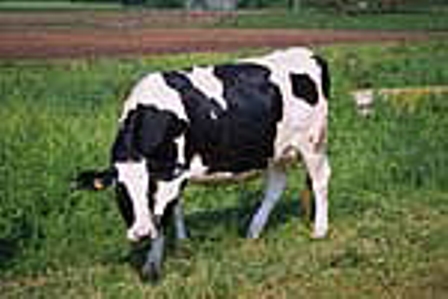Colostrum
by Dave Hanks
Colostrum is a thick milk. Mothers produce it for several days after giving birth to their young ones. It is good for the baby because of the extra nutrients and richness that it contains. It is thick and somewhat globular - the color not a pure white but somewhat yellowish-orange. No matter it's assets, the physical consistency of it prevents older people from wanting to drink it.
Milk cows are no exception and produce large quantities of it when they calve each year. Milk from them is not sent to the creamery until all colostrum is gone from the mammary glands. Dad always had a few Holsteins on the farm. He did not believe in owning a milking machine and so the sons of the family, in turn, got the opportunity to milk them by hand. When my turn came round, we had eight to ten cows in production. I hated everyone of them. They would kick over milk buckets and swat you with their dirty tail. Because off these feelings, the results of the ensuing tale are somewhat surprising.
My parents were not in the habit of taking vacations, especially long ones. In fact, this was the only one that I can remember. Even more surprising was that I, the "baby" of the family, was left home alone and in charge. It was late winter and the instructions were to dutifully look after the livestock, milk the cows and deliver the milk to the creamery, and to "dry-up" a
specific cow. Now it's a common practice in the dairy business to prepare a cow for her new calf by giving her a rest from milk production. This is done by gradually reducing her diet - which results in her giving less and less milk. You then stop milking her and going dry is now less stressful to the cow. This is usually done a month before her due date and gives her body a chance to recoup it's reserves.
As much as I hated to milk, it was surprising that I didn't follow my instructions more carefully. That cow was not "dried" but milked right along with the others.
Well the vacation progressed to a conclusion and I anticipated the family's return. As a farm family, much of our food was home produced and milk was no exception. It was a Saturday evening and I expected the family to be home that night. With this in mind, two extra gallons of milk would not go into the cans for delivery to our local creamery. These would be placed in the family refrigerator.
That evening I kept the first milk obtained and it happened to have come from the cow in question. She had responded well that eve and it was with interest that I noticed an increase in her production. The milk also seemed a little heavy and colorful. Shrugging those facts off, that milk went into the kitchen - chores were
completed, and I eventually retired to bed.
Sunday morn broke bright and cheery. The family was home
and the house was a-bustle - out to do the milking - "hey,
there's a new calf out here!" But wait, a knot rises in my stomach, I remember now that the cow didn't get dried-up
as she was supposed to have been! Guiltily I examined the
new calf and the cow. Both seemed OK and none the worse
for the experience. Being fearful of parental discipline, I decided to keep my failure to follow orders a secret.
When alone, and at the first opportunity, I checked the
refrigerator. The cream had risen to the top. It had a light yellow tinge to it. In school we had just learned about colostrum and now everything became clear in my brain. Two gallon of colostrum was in the frige awaiting family consumption. Should I reveal that fact to all? Discretion told me no.
The next few days were ones of great uneasiness. With
heart in mouth, I would sit quietly at the dinner table. My communications were minimal and I politely refused milk
when offered. It was with some amusement that I watched
my two older sisters drink that colostrum but I Must confess that I breathed much easier when those two bottles were consumed and washed.
If anyone knew, they never mentioned it. Nor did I - until
this moment of confession!
|
